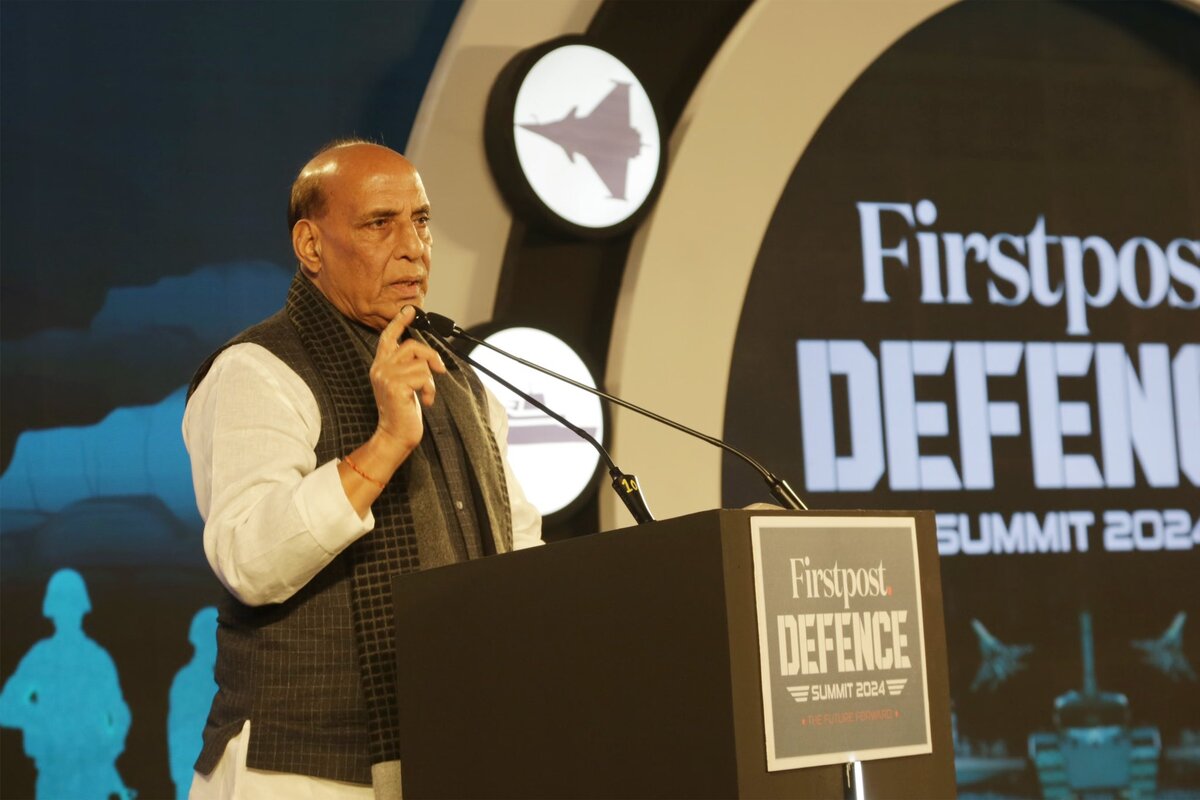77th anniversary of Poonch link-up with India celebrated
The 77th link-up anniversary of Poonch with the rest of India was on Friday celebrated by the Army and civilian population of the border region.
Speaking at a defence summit organised by a private media organisation in New Delhi, he termed ‘giving priority to long-termism and long-term gains’ as the main difference between the present government and the previous dispensations.

The Narendra Modi government is focusing on long-term gains and not short-term outcomes to make India a developed nation by 2047, Defence Minister Rajnath Singh said on Saturday.
Speaking at a defence summit organised by a private media organisation in New Delhi, he termed ‘giving priority to long-termism and long-term gains’ as the main difference between the present government and the previous dispensations.
Mr Singh said that unlike in the past, the present government has formulated and implemented policies which not only provide short-term gains for just five years. He enumerated the reforms undertaken in the defence sector for long-term gains in the last few years, including creation of the post of Chief of Defence Staff and setting up of the Department of Military Affairs which has enhanced jointness, synergy and smooth coordination among the three Services.
Advertisement
He pointed out that the government has been focusing on the integration of the Indian Army, the Indian Navy and the Indian Air Force, which will ensure enhanced coordination among them in times of crisis. “Earlier, the three Services used to work in silos. We focused on their integration which was an out-of-the-box step and the need of the hour. It was a little difficult in the beginning; but today our military is ready with better coordination to deal with every challenge together,” he said.
On the major steps taken in the field of defence manufacturing, the minister said the Ministry of Defence notified five positive indigenisation lists of the Services, comprising over 500 items, and four other lists, with over 4,600 items for DPSUs,to ensure that the soldiers use made in India weapons and platforms. He also referred to the decision to earmark 75 per cent of the capital acquisition budget for procurement from local companies.
He added that some people were of the view that indigenous weapons won’t be world class; however, the government believes in the capabilities of the domestic industry and that they can consistently improve and deliver state-of-the-art products.
Mr Singh emphasised that radical changes have been made in the defence sector for long-term gains to make it completely self-reliant, and achieve the Prime Minister’s goal of ‘Aatmanirbhar Bharat’. He stated that imposing a ban on import of arms was a short-term difficulty as today that challenge is slowly turning into opportunity, and India is rising on the defence industrial landscape of the world.
“Today, our military is using weapons and platforms, which are manufactured on our own soil,” he said.
The minister reasserted that no military can protect its nation from equipment imported from outside and self-reliance in defence production is must for India in today’s time. He pointed out that the government’s persistent efforts towards self-reliance have started to bear fruit as the defence production has crossed Rs one lakh crore.
He was of the view that through initiatives like setting up defence industrial corridors in Uttar Pradesh and Tamil Nadu, the government is making sure that modern military hardware is not only manufactured in India, but also exported to friendly countries.
“Earlier, India was known to be an arms importer. But today, under the leadership of the Prime Minister, we have come out of our comfort zone and found a place in the list of top-25 arms exporter nations.Seven-eight years ago, defence exports did not even touch Rs 1,000 crore. Today, it has touched Rs 16,000 crore. By 2028-29, annual defence production is expected to touch Rs three lakh crore and defence exports Rs 50,000 crore,” he said.
Advertisement